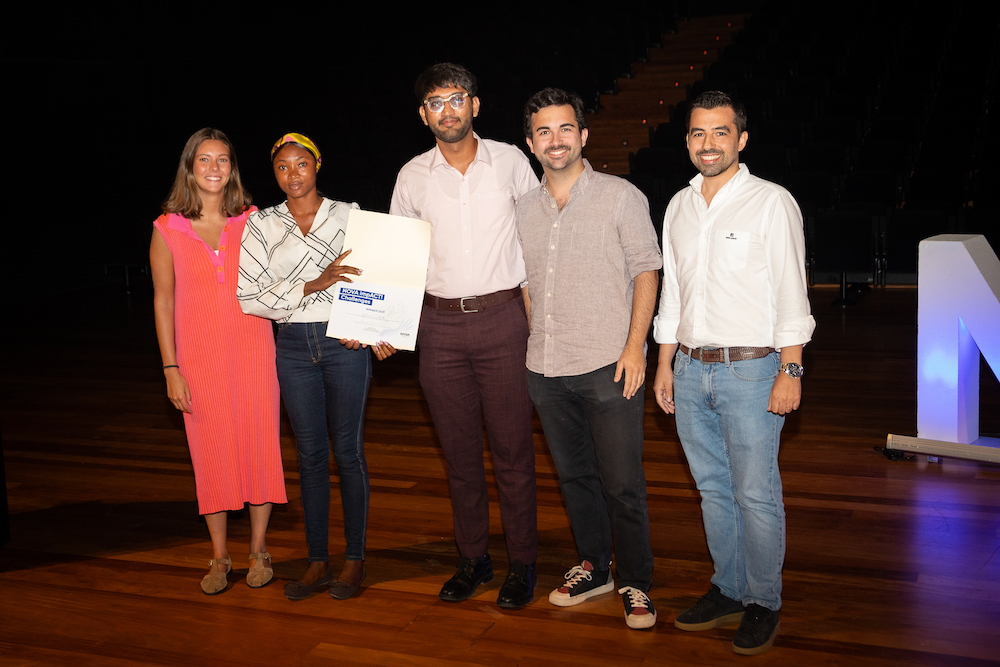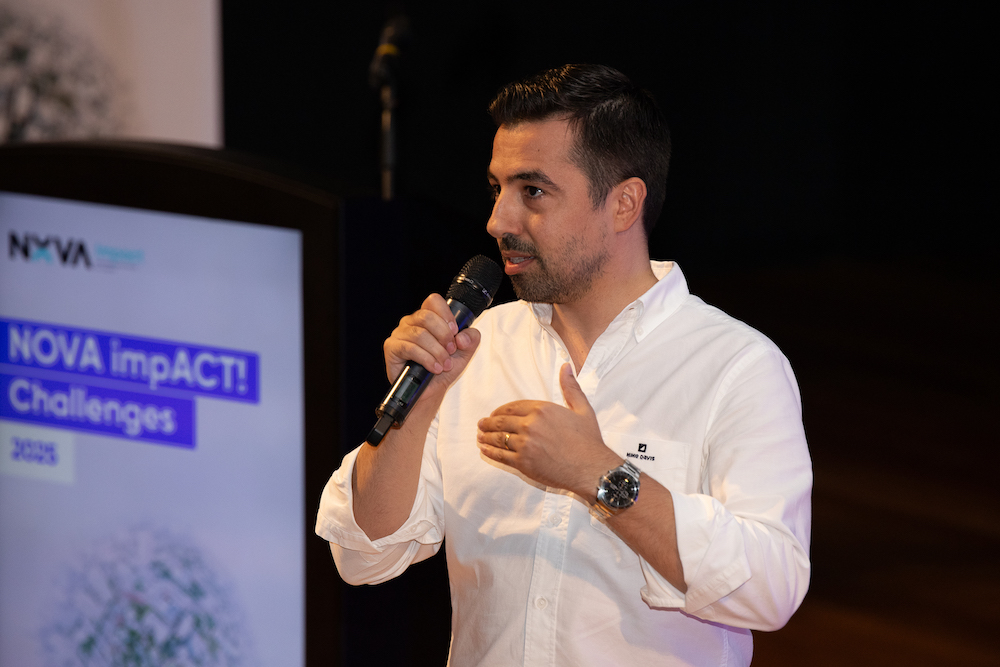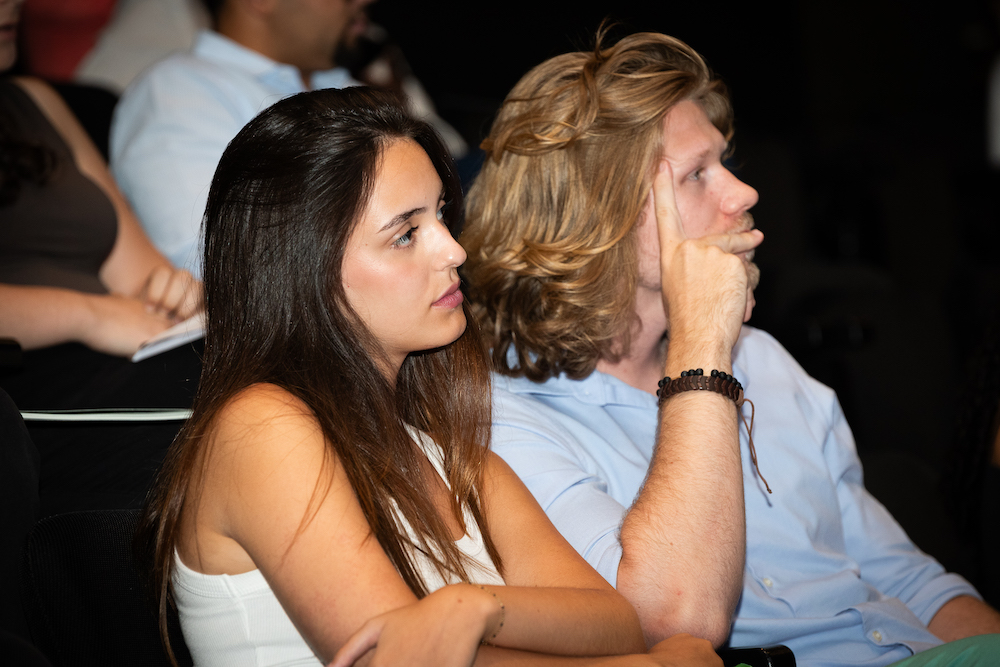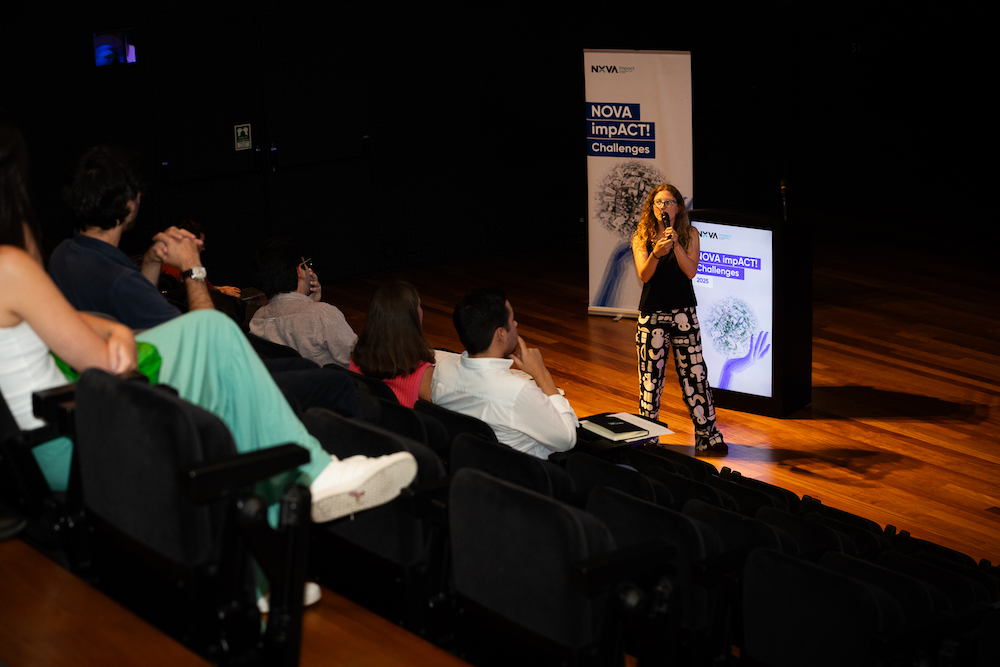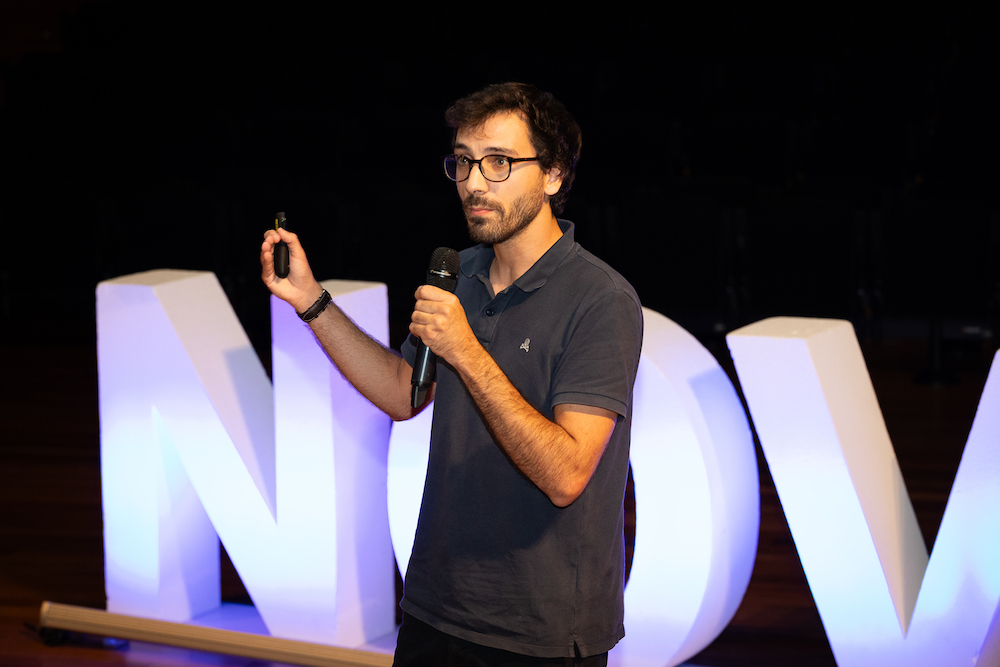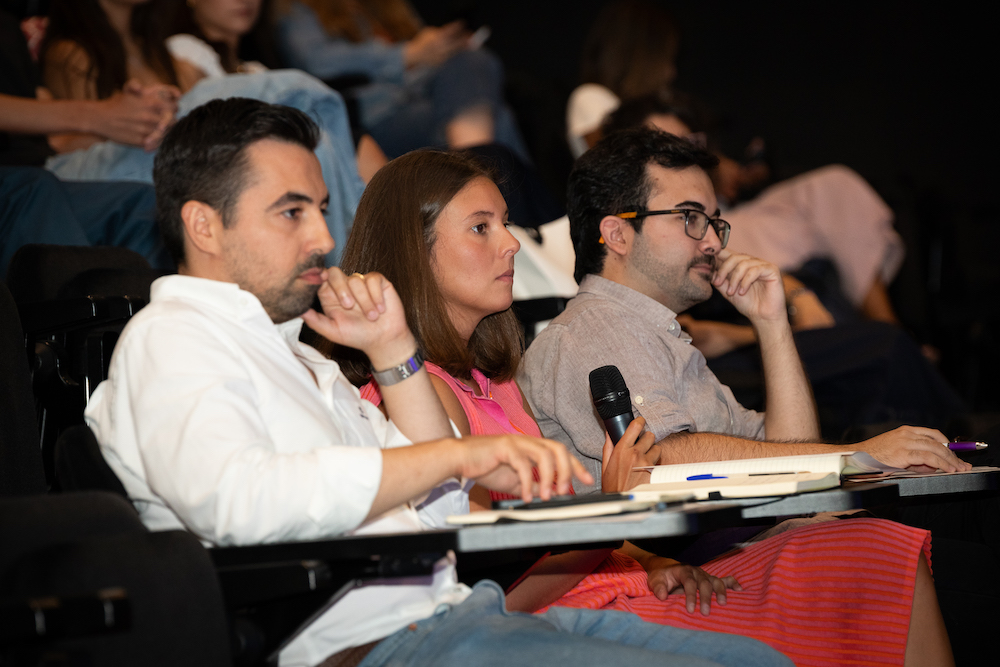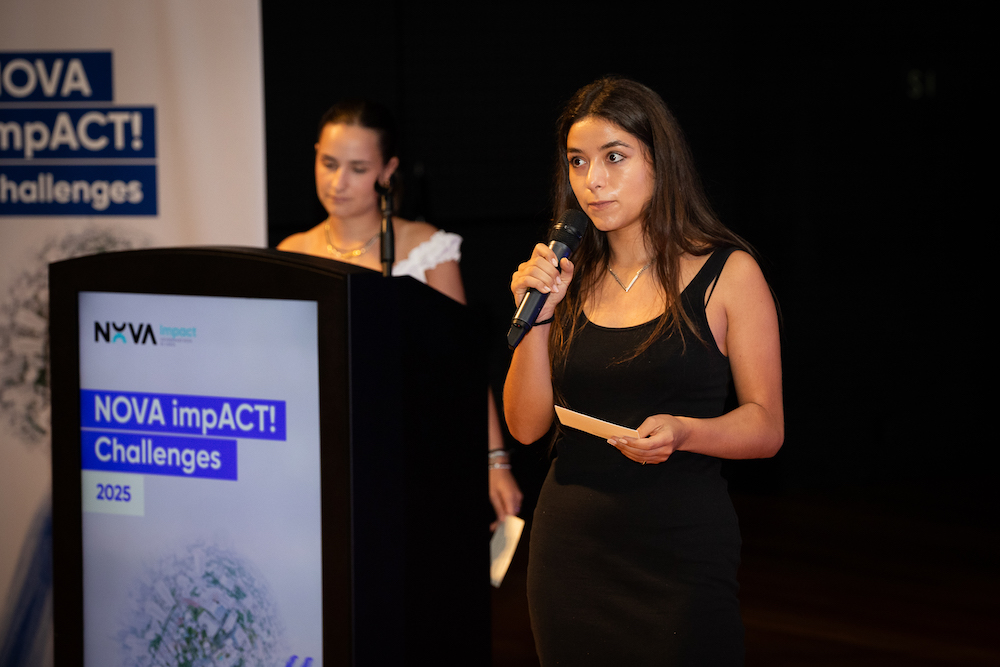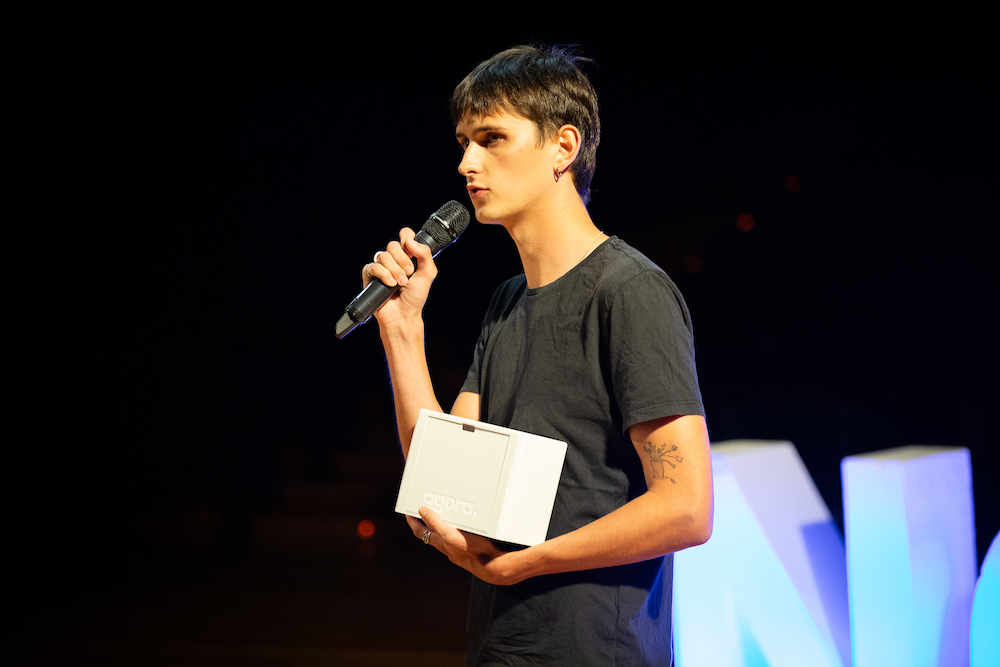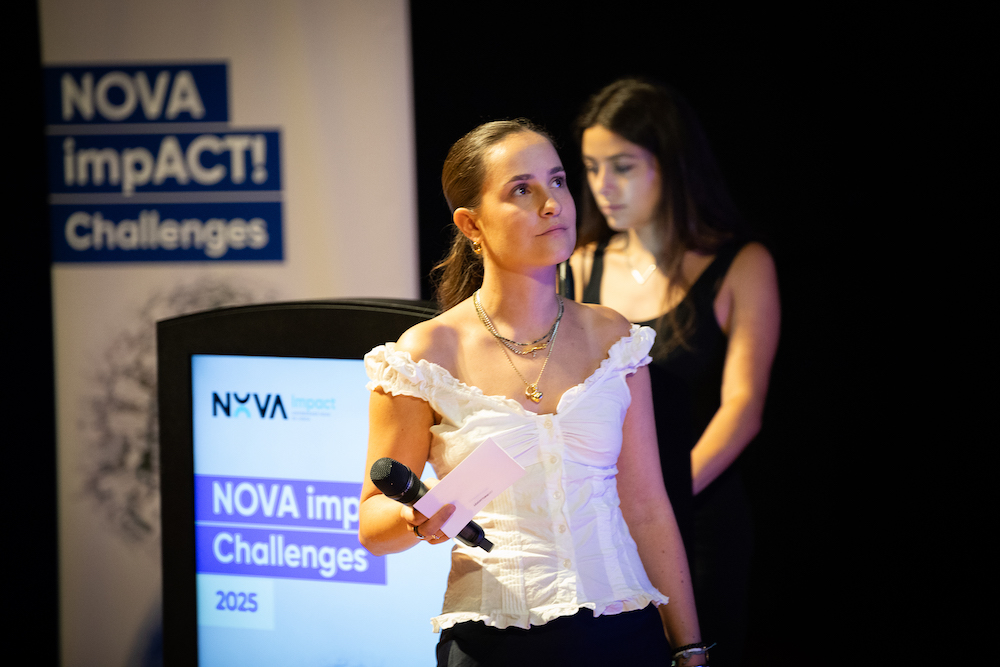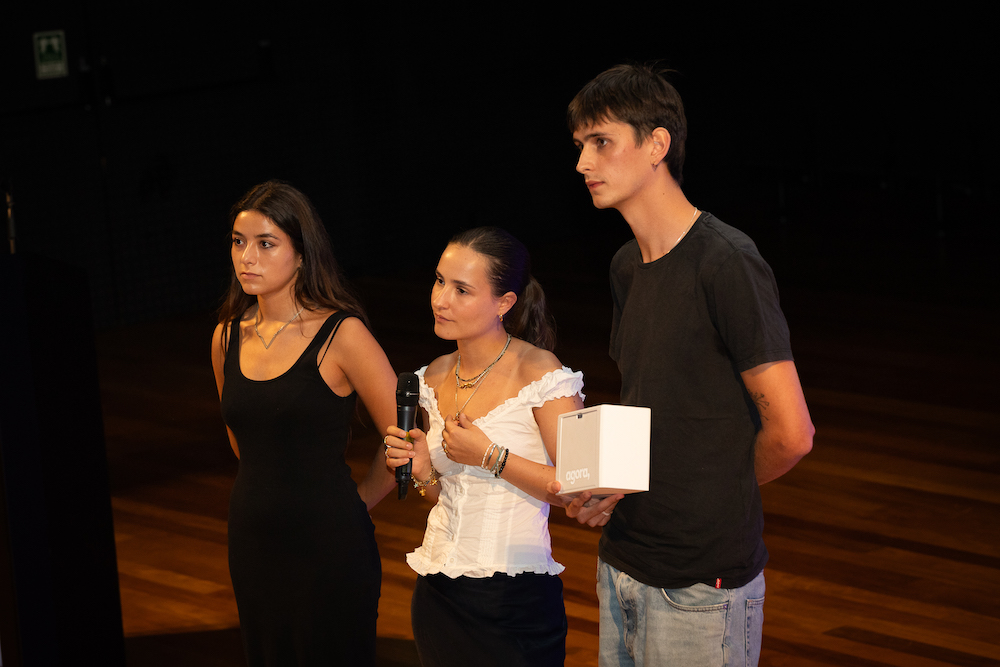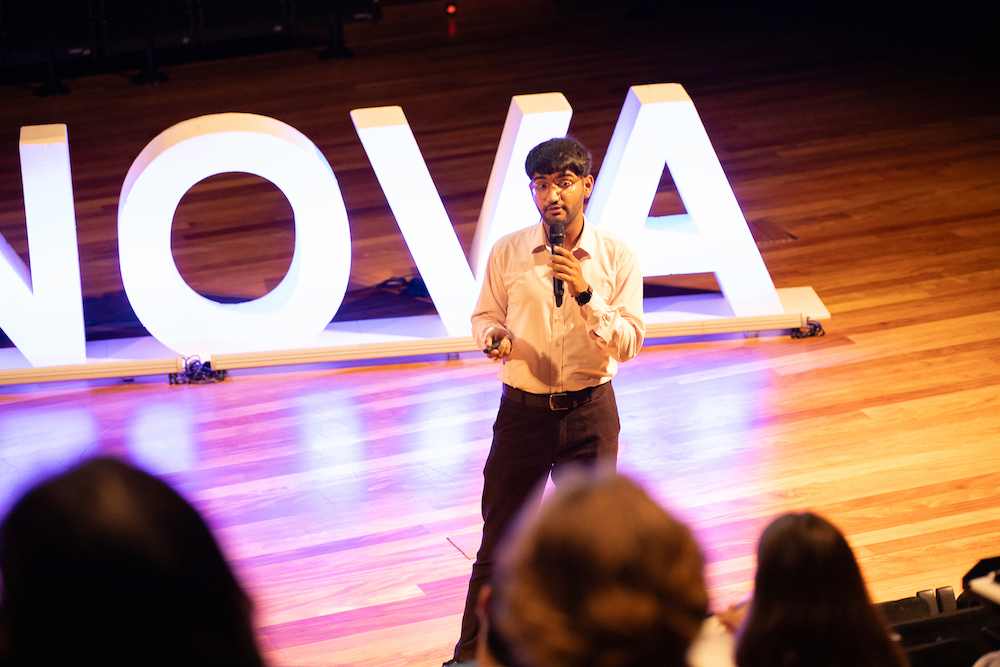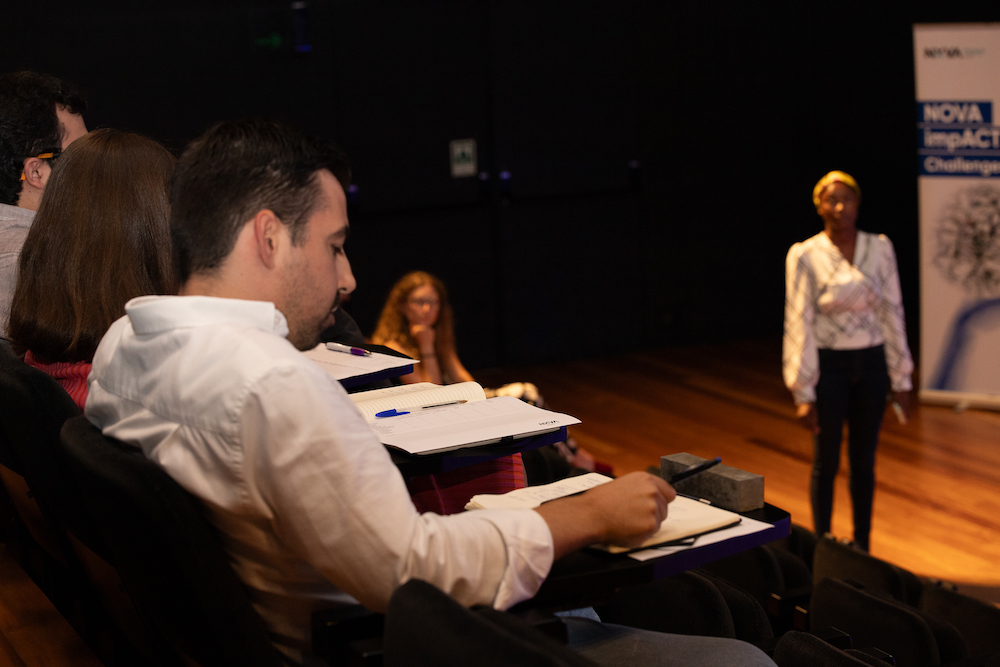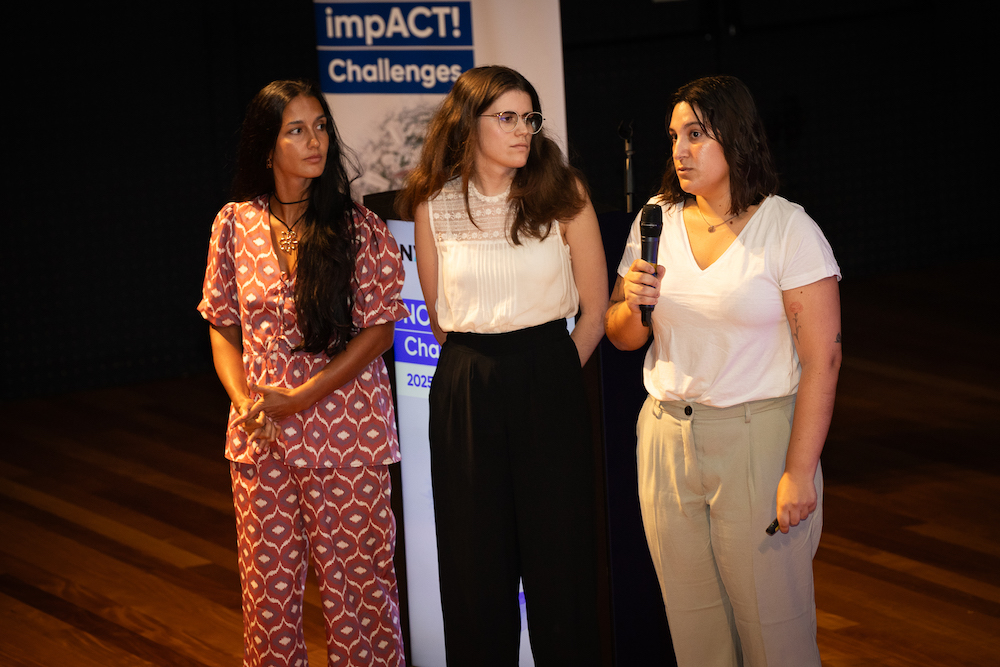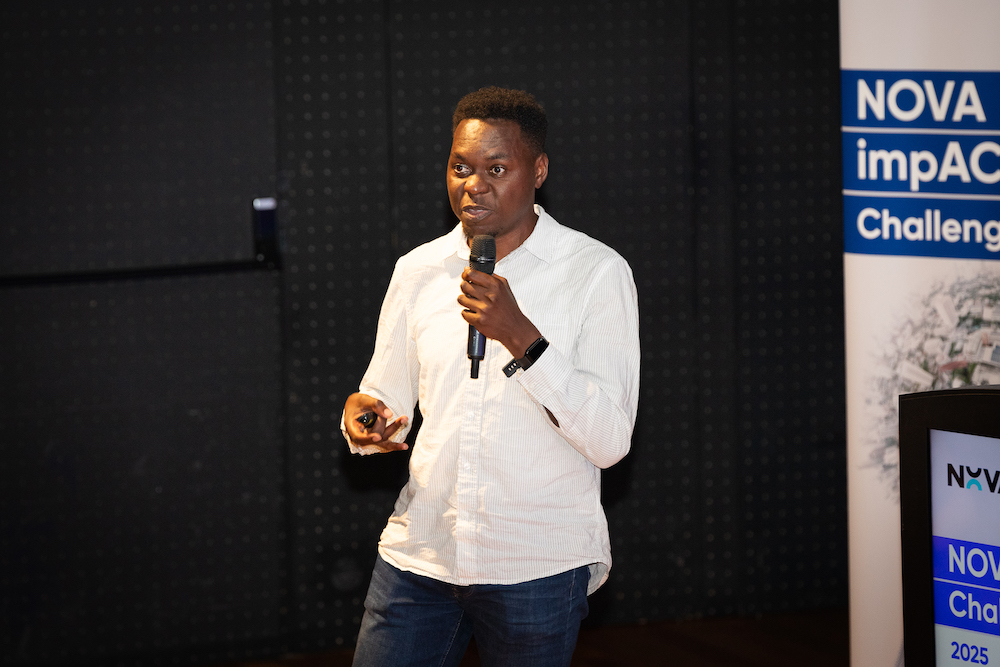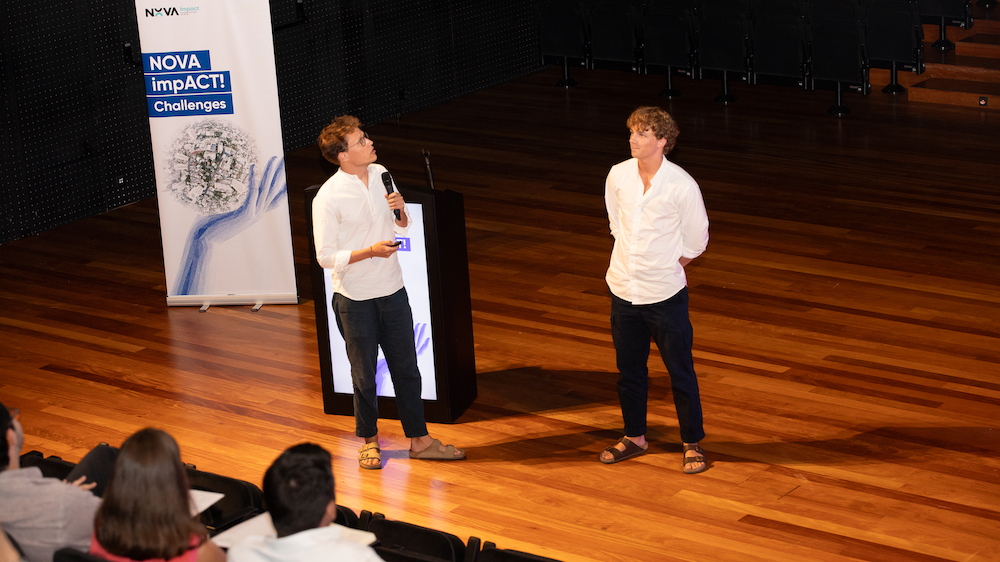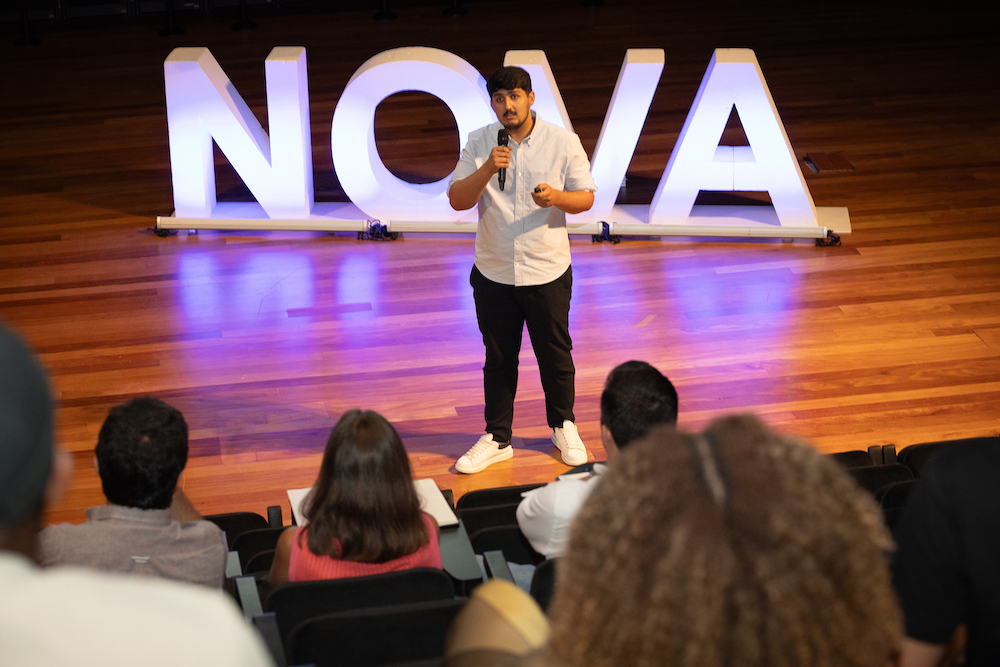The future, or at least a glimpse of it, made its way through the Rectorate of NOVA this Monday, the 14th, during the Demo Day of NOVA impACT! Challenges. This initiative, led by the NOVA Impact Office, supports innovative projects aligned with the United Nations Sustainable Development Goals (SDGs), the set of 17 global targets designed to ensure a fairer and more sustainable future to all by 2030.
After three weeks of workshops, mentoring and prototype development, 10 finalist teams pitched their solutions to a jury composed of Hélder Lopes (NOVA), Manuel Gaspar (Casa do Impacto) and Inês Petrucci (3xP Global).
Among the standout projects was GeoCura, a team of four Erasmus Mundus students from NOVA FCT — Huseyin Cetinkaya, Mavis Olorunyomi, Fabiola Dodaj and Shah Saud — who secured first place with a proposal combining environmental impact and social relevance.
GeoCura developed a self-healing concrete capable of autonomously repairing cracks and structural damage over time. Designed for the construction sector, this solution aims to reduce CO₂ emissions linked to cement production and maintenance, cut repair costs, and extend the lifespan of infrastructure.
Targeting a market valued at €14 billion, GeoCura contributes to SDG 9 (Industry, Innovation and Infrastructure), SDG 11 (Sustainable Cities and Communities) and SDG 13 (Climate Action), promoting more resilient and eco-friendly construction.
The project was awarded € 2,000 to support its development and was mentored by Professor Fernanda Lussá. It also received technical support from Luís Baltazar, an associate professor in the Department of Civil Engineering. His contribution was particularly crucial in granting access to the NOVA FCT Civil Engineering Department’s laboratory facilities and ensuring technical and scientific monitoring throughout the project’s development.
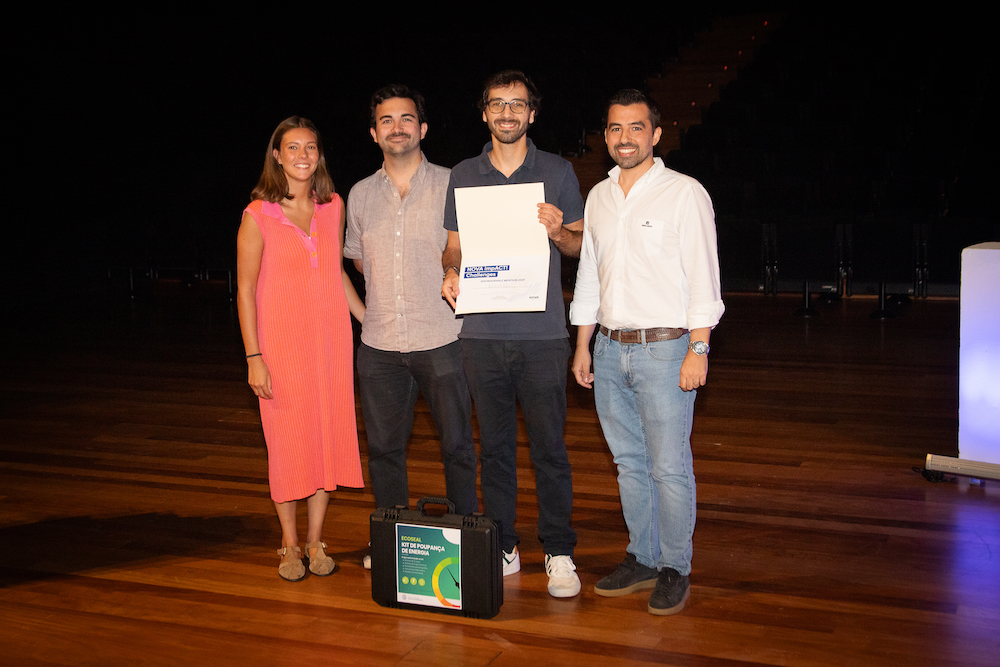
The jury also awarded an honourable mention to the team EcoSeal, composed of Afonso Mendes (NOVA FCT), Selina Hartmann and Paula Reimold (Nova SBE), who presented a DIY Energy Saving Kit designed to help households identify and address energy inefficiencies.
Available for free two-week loans through community partnerships, the kit includes tools and educational materials that enable users to monitor energy use, reduce waste, improve thermal comfort, and lower energy bills.
Guided by mentor Rafael Rodrigues, the project encourages sustainable habits and energy literacy, contributing to SDG 7 (Affordable and Clean Energy), SDG 11, SDG 12 (Responsible Consumption and Production) and SDG 13.
In total, 33 students took part, organised into 10 multidisciplinary teams, and over the course of three weeks benefited from specialised training, dedicated mentoring, and an initial grant of €500 to support prototype development.

